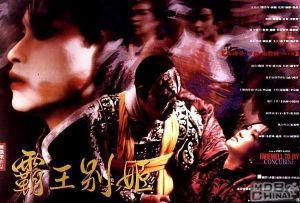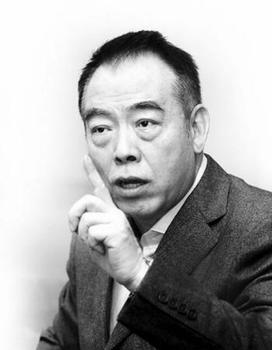The early 1990s was a high point in Zhang’s career that saw the production of several of his worldrenowned films. Raise the Red Lantern won a Silver Lion for Best Director at the 48th Venice International Film Festival in 1991 and was nominated in the Best Foreign Language Film category at the 1992 Academy Awards. Zhang’s next directorial work, The Story of Qiu Ju, won the Golden Lion Award at the 49th Venice International Film Festival in 1992. Gong Li, who played Qiu Ju, also won the award for best actress.
While Raise the Red Lantern depicts the lives of wives and concubines vying for their husband’s attention and affections in a wealthy family compound during the 1920s, The Story of Qiu Ju paints a more modern scene. The story unfolds in modern rural Northwest China and tells the tale of a woman from the countryside seeking justice for her husband, who was beaten viciously by the head of the village.
In striking contrast to her former screen images of a voluptuous beauty in Zhang’s directorial works, in The Story of Qiu Ju Gong Li’s character is portrayed as a clumsy, stubborn and uneducated rural woman. The story also differs in subject matter from Zhang’s earlier works. It explores repressed, distorted souls and the darker side of society, while evoking the often grim realities of Chinese rural life.
Chinese Movie Craze
China’s reform and opening-up drive having economically enriched lives, many people are showing a greater interest in exploring life’s spiritual side. In the early 1990s this precipitated greater demand for films that explore the inner workings of the human soul. The trend moved on from broad-sweeping epics to cozier films centered on real family drama. In short, Chinese films got smarter, and began to be enjoyed by domestic and global audiences for their originality and insight.
The year 1993 saw Chinese films collect an unprecedented number of international awards. Xie Fei, a leading exemplar of China’s fourth-generation film directors, won a Golden Bear for Best Film for his Woman Sesame Oil Maker at the 43rd Berlin International Film Festival together with Chinese American film director Ang Lee’s The Wedding Banquet. In addition, Chinese films The Bloody Morning, Life Begins at Forty, Swordsman at Double Flag Town and Mother won New Film Forum Awards at the same festival; An Answer from Heaven directed by Wang Junzheng garnered the festival’s “International Children’s Youth Film Center Award,” and Fun, directed by Ning Ying, won the Special Honor Award.

However the biggest award winner in 1993 was Farewell My Concubine, directed by Chen Kaige. It collected the Palm d’Or award at the 46th Cannes International Film Festival and a separate accolade from the International Critics Award Union. Moreover, it won the Los Angeles Film Critics Association Award for Best Foreign Language Film. Chen was already recognized domestically for his work before rising to international acclaim, but Farewell My Concubine enabled the director to reach a whole new audience within China.
Farewell My Concubine heightened Chinese audiences’ understanding of homosexuality. The plot contains many interweaving cultural elements that render the film intriguing to both Chinese and Western audiences: Peking Opera, gay love and 50 years of Chinese social history from the 1920s to the 1970s.
The story is tragic, moving and poignant. At the age of nine, Dieyi comes to the Guan Troupe House to learn Peking Opera. He becomes good buddies with Xiaolou, and falls secretly in love with him. Their performances in Farewell My Concubine, a traditional Peking Opera play, were highly rated in Beijing. During the period of Japanese occupation, Xiaolou marries Juxian, a prostitute, and Dieyi falls into sorrow and loneliness. After the founding of New China, the two old partners are reunited in performance. Then comes the “cultural revolution,” and, buckling to pressure, Xiaolou reveals that Dieyi is gay. In despair Dieyi reveals to the public Juxian’s former profession. She commits suicide. Eleven years later, during his final performance of Farewell My Concubine with Xiaolou, Dieyi kills himself on stage.

Of the new, rawer direction in Chinese film, Farewell My Concubine director Chen Kaige said: “Changing our style was a spontaneous initiative in the pursuit of art instead of a choice compelled by potential box-office rewards.”
